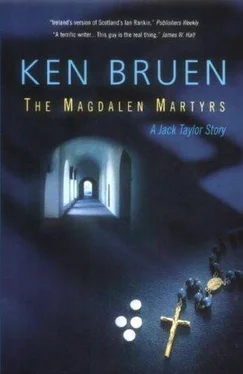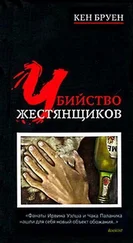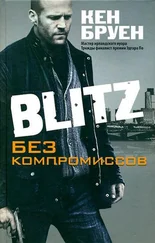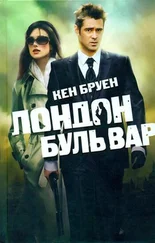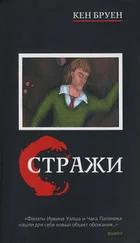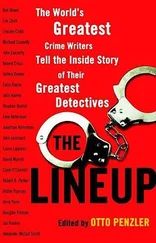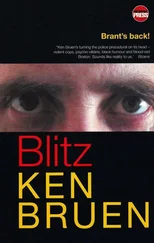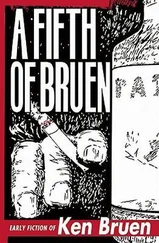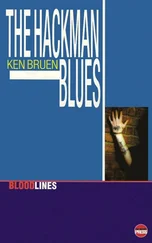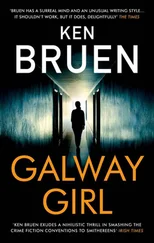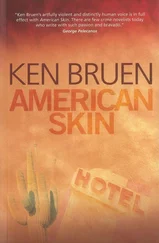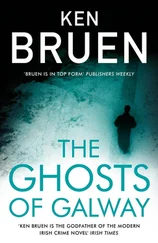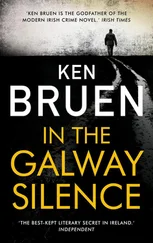She’d been the editor of Vogue and Harper’s Bazaar.
Her indictment had seared my soul. I don’t even think she meant it as such. If anything, she’d said it with a knowing resignation.
I don’t know how long I sat staring into my glass. All the grief I’d caused and endured had come storming upon my soul. At the very best of times, I was never “fond” of myself. For that moment, I was full of self-loathing. Then, I understood how Brendan could arrange a noose, step on a kitchen chair and swing. A middle-aged woman was cleaning and clearing the tables. I observed without caring a badge in her blouse. One of those frigging smile jobs. Written underneath was,
“Put on a happy face.”
I could have happily torn it off and made her eat it. She indicated Ridge’s Diet Coke, asked,
“Is that a dead soldier?”
“Oh yes.”
She paused, and I knew I was getting her scrutiny. I didn’t look up. She said,
“Cheer up, it might never happen.”
“It already has.”
Stymied her, but not for long. She was the type who’d find merit in politics. She said,
“You never know what’s around the corner.”
Now I looked up, pinned her with everything I’d been feeling, said,
“If it bears the slightest resemblance to my past, even the tiniest similarity, then I’m fucked.”
She took off quick.
Bill Cassell’s funeral rates as one of the most miserable I’ve ever attended. God knows, I’ve clocked up my quota. They’ve ranged from upbeat through pathetic to the plain sad. But for sheer misery, this was the pits.
A filthy day, the driving rain that soaks you entirely. No amount of wet gear is sufficient. You feel it dribble down your neck, wash along your legs, saturate your socks. It is relentless, a ferocious cold, and you understand the true meaning of “wretched”. Four people in all at the graveside. The priest, Fr Malachy, who had tried to light a cigarette. He failed. A gravedigger and a tiny frail woman. I was the fourth. Malachy rushed through some empty psalm. I helped the gravedigger lower the coffin. He was grunting with effort. I asked,
“Aren’t there usually two of you?”
“He wouldn’t come out in this weather.”
We made a bad job of it. The ropes cut into my hands, and I broke the nails on two fingers. When we were done, the woman stopped forward, let a single white rose flutter down. I moved to her, asked,
“Maggie?”
“Yes?”
“You’re Bill’s sister?”
She shrank back from me, as if I was about to assault her. Her whole demeanour was that of a whipped dog. Not only had she the body language of a victim, but also her eyes said she lived in expectation of further punishment. I tried to appear as unthreatening as I could. Not easy when you’re bundled in a guard’s coat, wet through and two feet from an open grave. She answered,
“Yes.”
As if pleading guilty.
I put out my hand, said,
“Jack Taylor.”
Her hand met mine slowly and she asked,
“Were you Bill’s friend?”
She had huge saucer eyes; guile or badness had never touched them. I didn’t want to out and out lie to such a person, so I said,
“We went to school together.”
“Bill didn’t like school.”
“Me neither.”
This seemed to ease her apprehension, and she said,
“You were so good to come and it being such a woeful day.”
I had no truthful reply. Malachy touched me on the shoulder, asked,
“A word?”
I said to Maggie,
“Excuse me a moment.”
And I turned to him, snapped,
“What?”
He backed up. Jesus, everybody was doing that. The vibes coming from me must have been deadly. He said,
“I’m surprised you’re here.”
“Like it’s any of your business.”
He made a vain attempt to wipe rain from his face. Even his dog collar was soaked. He said,
“Your mother had a stroke.”
“Yeah?”
“Good God, man, is that all you have to say?”
“Where is she?”
“She’s back home now. Will you go to see her?”
“I’ll think about it.”
“You have the heart of the devil.”
“Thanks.”
I turned back to Maggie. She was gazing at the grave with such a profound look of desolation. I’d have taken her arm but felt she’d have jumped. I said,
“Maggie, can I get you a taxi?”
“No, no, I have a car.”
She could see my amazement, said,
“Bill bought it. He bullied me into driving lessons. I wasn’t very good and I’d have given up, but you know Bill. He wasn’t a man you could go against.”
I nodded. Here was something I could certainly bear testament to. She said,
“I didn’t know what to do after.”
“After?”
“You know, people hire hotels and have something for the mourners, but...”
Her distress at the lack of people was palpable, so I said,
“Why don’t we go and have a drink, raise a toast to his memory?”
Her clutching at this lifeline was awful. She near cried,
“Would you... oh... that would be wonderful... I’ll pay... We can talk about Bill... and...”
My heart sank.
Her car, a Toyota, was outside the gate. As she got behind the wheel, she seemed completely disoriented. Before I could speak, she got it together, and with two false starts, we moved into traffic. She gave a smile of defeat, said,
“I’m not very good at this.”
“Don’t worry.”
I figured I’d do enough for the both of us. We went down Bohermore at a snail’s pace. Other motorists raged at us. I suggested,
“Maybe move up into third gear.”
“Oh.”
As we passed Tonery’s, I said,
“Pull in here.”
More screaming of tyres as we attempted that. We side-swiped a parked van and ground to a halt. I got out fast, waited in the rain for her. She asked,
“Will the car be all right here?”
At least until the van driver arrived. I said,
“Sure.”
“When everything closed down
I felt the closing in myself
And what
Would I be doing with
Concepts like redemption?”
K.B.
The pub has a huge sun lounge at the back. Despite the outside deluge, it was bright and welcoming. The barman nodded, said,
“I’ll come over.”
We sat and she said,
“This is my treat.”
I figured she didn’t get to say that very often. When the barman came, she said,
“A small sherry.”
I ordered Jameson.
We sat in silence till the drinks came. She didn’t seem uncomfortable with that, as if it was what she most experienced. I raised my glass, said,
“To... Bill.”
And she began to cry.
Not the loud sobbing type. Worse, that deep internal heaving that is horrendous to witness. Tears rolled down her cheeks, plinked into her glass. I stared at the rain.
What I was thinking was some lines of Merton that had struck a chord in my soul:
I kept my eyes closed, more out of apathy than anything else. But anyway, there was no need to open one’s eyes to see the visitor, to see death. Death is someone you see very clearly with eyes in the centre of your heart; eyes that do not see by reacting to light, but by reacting to a kind of chill from within the marrow of your heart.
She dried her eyes, said,
“It’s lovely here.”
“It is.”
“I don’t get out much.”
I searched for some cliche to answer, couldn’t find one, asked,
“Did Bill ever talk about a Rita Monroe?”
A shudder ran down her body, then,
“He was obsessed with her.”
“Why?”
She took some of the sherry, began,
“Bill adored my mother. But she wasn’t... well. I think she was very... brittle.”
Читать дальше
